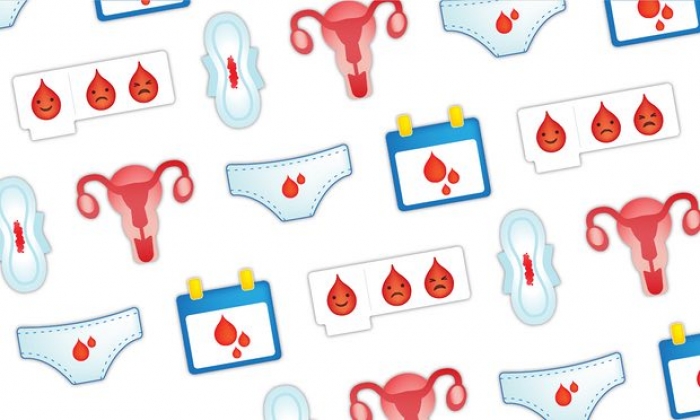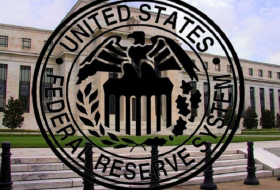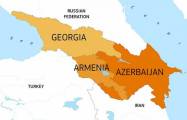For a natural phenomenon that the average woman will spend thousands of days of her life experiencing, the shame and silence around menstruation makes no sense.
In fact right now 800 million women, including people who identify as male or non-gender binary, are menstruating. Yet in Australia and around the world, there is a strange belief that menstruation is disgusting secret women’s business.
Girls-focused development charity Plan International recently commissioned research to ask 2,000 women aged 18 to 34 about discussing their period.
Seven out of 10 said they felt uncomfortable talking about their period with their male co-workers. And only one in three women felt happy to speak about it to their female bosses. At school, almost half reported feeling ashamed to speak to their female teachers and 75% said they wouldn’t discuss it with their male teachers.
When it comes to menstrual hygiene, you would think our society was stuck in the 1950s.
It is well-established that girls are severely marginalised compared with boys. The moment the first drop of blood leaves her uterus, the gender gap between sexes becomes even more pronounced.
For girls here in Australia, but more commonly in the developing world, they begin to miss school and face bullying and unfair treatment because of a biological process they cannot control.
Just last year in Nepal, a 15-year-old girl suffocated to death after being forced to sleep in a shed while menstruating. She was ostracised from her community because of superstitions around menstruation.
Plan International’s research abroad tells us 90% of girls in rural Ghana feel ashamed during their periods, 51% in Ethiopia miss one to four days of school per month and 28% of girls don’t go to school when they have their period. In India, only one in 10 girls and women have access to sanitary products.
Right now in South Sudan, girls caught up in the famine crisis face horrific sanitary conditions when they’re on their period. Plan International staff working in South Sudan report girls have no access to pads and are forced to use leaves or hide in the forest because they’re afraid of being shamed. This puts them at great risk of abduction, rape, illness and trafficking.
In Australia and the UK, we are lucky to live in a country with relatively easy access to menstrual hygiene supplies, but the taboo still affects us. So many of us suffer our period in silence and hide our tampons and pads away as if they were a dirty secret. Why?
Why, in 2017, do people who menstruate still fear for their safety, use medieval hygiene methods, cop harassment, abuse and are placed at a disadvantage because of a natural human function?
It’s time to get real about periods. They’re smelly, messy, and sometimes it can feel like you’re being hit by a truck. But does that mean we should shame women for it?
Even in the west, some people still consider women impure during menstruation. Let’s not ignore President Donald Trump’s sexist remark about Megyn Kelly concerning blood coming out of “wherever”. And here in Australia, gendered swipes at women in the media for being “hysterical”.
And then there are the usual PMS jokes that to some may seem funny, but to the person experiencing their period it is just another disguised form of misogyny. God forbid a woman jokes about the size of a man’s penis.
Slowly, it’s beginning to change – with the introduction of menstrual leave being touted for Italy – but progress is not fast enough.
This is precisely why Plan International UK and Plan Australia have launched a campaign to introduce a period emoji.
The campaign aims to start destroying stigmas around menstruation, aiming to break the silence and shame around periods. Wouldn’t it be great to explain the feelings of cramps, bloating, uncontrollable emotions and comfort eating with one single emoji?
Love them or loathe them, emojis have become a part of our modern vocabulary. More than 92% of the online population use emojis every day to communicate between friends and across cultures. And Plan UK’s research showed that almost half (45%) of women surveyed would happily use a period emoji, particularly to communicate with their partners.
It’s ridiculous that Unicode offers 1,088 emojis, including a long nose goblin emoji, a floppy disc, a unicorn emoji and a smiling poo emoji, but there is no period emoji. The exclusion of a period emoji is a just another way to silence speech around menstrual health which contributes to stigma, shame, leading to yet more silence.
If we’re going to make any progress to achieve gender equality, we need to first encourage people to talk about their period and to challenge the idea that there is a “problem” with menstruation and girls’ bodies.
It’s time to stop discriminating against a bodily function that makes humankind a possibility. Let’s say it loud and clear and often: there’s no shame in menstruating.
More about: #emoji
















































